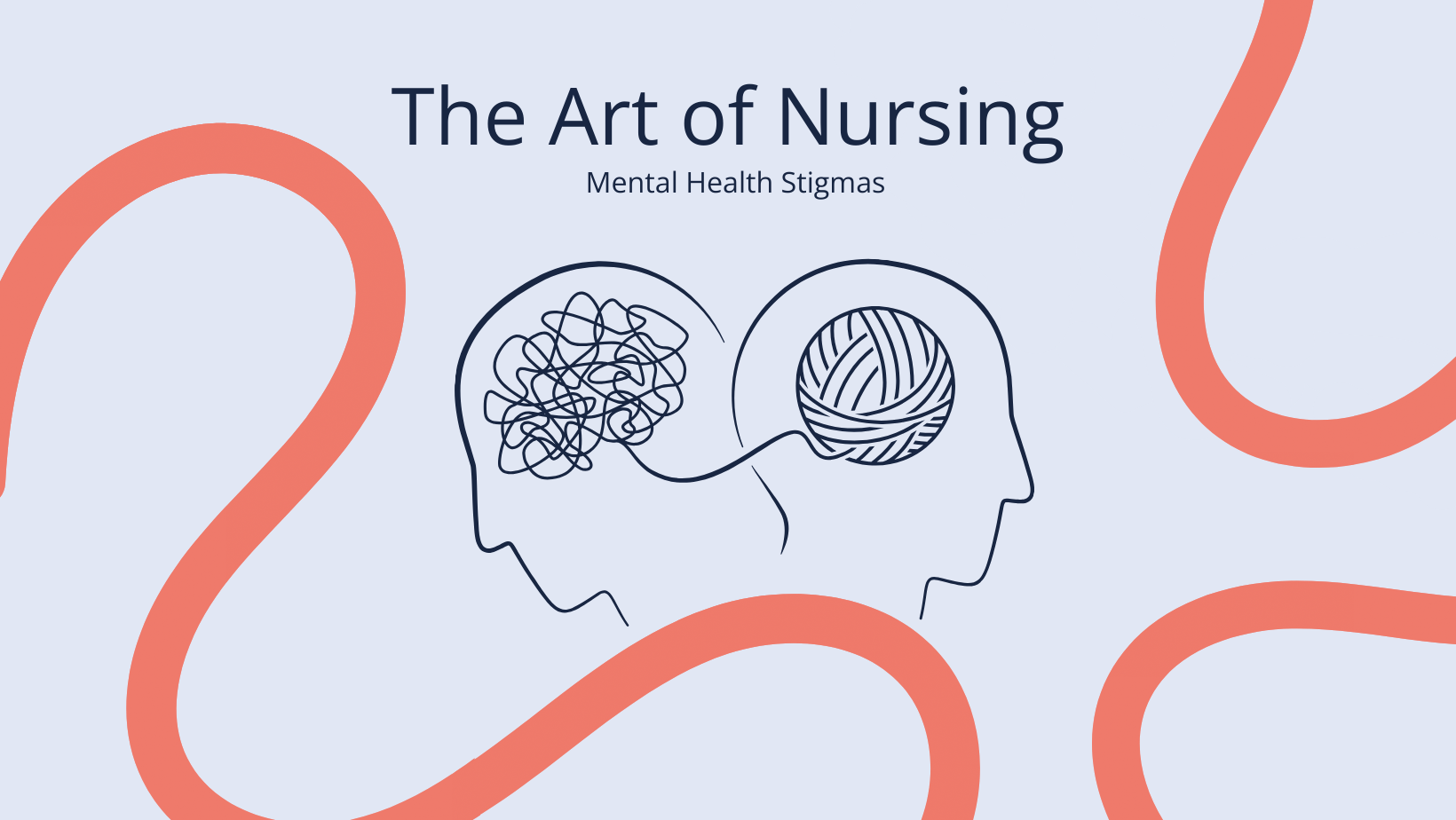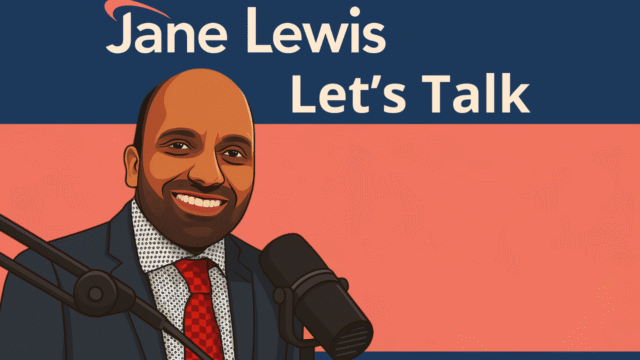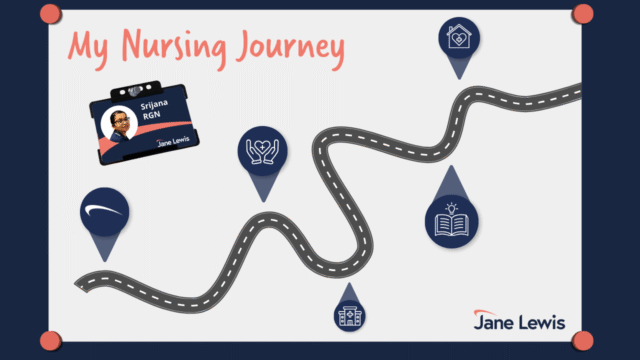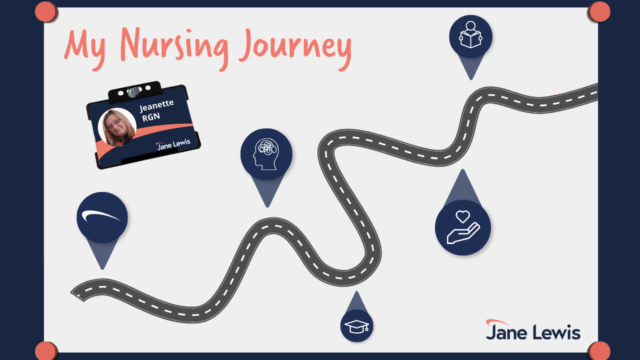In this insightful article, our experienced dual registered nurses, K and A, share their perspectives on mental health, addressing the lingering stigmas that still exist and the importance of prioritising self-care and seeking help when needed.
Drawing from their extensive expertise, K and A provide valuable insights that not only raise awareness but also encourage open and honest conversations about mental health challenges.
Why is it important for us to talk about mental health as a society?
K: There is still a stigma surrounding mental health, during my recent Jane Lewis bookings I’ve been promoting just talking about mental health in a relaxed way and trying to remove the stigma that little bit more. If you broke your arm, everybody would know and people would be asking if you’re ok, seeing what help you needed. But it’s not the same with mental health you can’t see it, if you don’t tell anybody no one will know that anything is wrong.
There’s also a stigma around mental health treatment, if you have an infection you’d take an antibiotic, so why shouldn’t you take an antidepressant if your mood is low? People consider it to be a weakness, but in fact people battling with their mental health are so strong for actually asking for help and reaching out.
A: I think for me it’s the fact that people have been made to feel like mental health is a bad thing, or that you would be thought of negatively if you were to talk about having mental ill health. That’s down to how the media has portrayed mental health in films, newspapers, TV – for example, you see people who have perpetrated crime being labelled as having a mental health issues and then people are led to believe that the person is dangerous because of their mental health. When they’re not actually telling you the full story. Most people who have perpetrated crimes are under the influence of drugs and alcohol but some may also have a mental illness. And so, the media have then isolated people suffering from mental illness and created bias within society.
K: I fully agree with that. You wouldn’t just see the headline “Woman murdered in park” it would be “Schizophrenic murders woman in park” and that automatically labels someone with schizophrenia as scary. Whereas in reality someone with schizophrenia is actually more likely to do something to themselves rather than hurt other people. But by the media sticking schizophrenia in the headline, people assume that it’s what caused them to commit the crime.
A: We’ve unintentionally put a barrier up because then people will think, if I have mental illness I’m scary, or I’m not employable. It’s portrayed that people with mental ill health are up and down, inconsistent and will need a lot of time off.
When people suffer with physical ill health and take time off for treatment, like chemo, it’s fully accepted and people understand why. But people who have mental ill health, when they take time off, I think it’s treated a bit differently.
We have people saying “lets talk about mental health, we really understand” but they don’t fully understand. As a society, we do talk about it and we want to talk about it, but there’s a lack of understanding and education on it. It’s not consistent. We see negative perceptions of people with mental illness, they’re depicted negatively. And then people with mental illness are up against a losing battle straight away.
What about Mental Health is often misunderstood?
K: Mental illness is a spectrum, you can have 5 people with schizophrenia and they all have different signs, symptoms and coping mechanisms. They could all act completely differently to each other. The same with bipolar disorder, just because you have been diagnosed as bipolar, it doesn’t mean that you go from being manic to not being able to get out of bed. It’s a bit like the autistic spectrum; there are lots of people who are autistic and fully functioning adults; in full-time employment, drives a car and live independently. But then on the other end of the spectrum you have those who are unable to communicate verbally. It’s a whole broad spectrum and the same goes for mental illness.
A: That’s exactly it. Mental health is such a spectrum, its not one-size-fits-all. This is where I think society tries to say that everyone with depression has a set list of symptoms and acts a certain way and then the same for people with anxiety. When it’s not like that, each individual should be treated as an individual, not as a collective. And that’s where I think we’re going wrong. Organisations will say “let’s have this mental health strategy that will fit everyone” well it doesn’t, mental health plans should be altered where required for an individual’s needs. We need to be doing things like we do for disability awareness, everyone’s needs are catered for, but with mental health I think everyone is just thrown into one box.
K: And people don’t fit into boxes. I suffer from depression and anxiety, but I can still be a fully qualified nurse and functioning adult. But then at the other end of the spectrum you can have someone suffering from depression who has gone from not being able to leave the house to not being able to even face having a shower and getting dressed in the morning. It’s a very broad scale but people try to put them in this little box – it just won’t work.
A: When we mention mental health people think illness, but actually there’s a big difference between mental health and mental illness. We all have mental health, just like physical health, but people forget that. It’s all about how we look after ourselves – how we manage stress, our daily living, how we get through the day and how we manage the ups and downs of life. If we’re not looking after our mental health, like we do with our physical health, it will start to impact us.
A lot of businesses will talk about having a mental health strategy, but what do they actually want to achieve from this strategy? Are we talking about people’s everyday mental health or are they thinking about people with mental illness?
K: Yes, it does seem like a lot of companies have gone “yes we will look after your mental health and well-being as you are part of this company”, but in reality that means sticking a poster up and offering a helpline – job done, box ticked. But how is that actually helping your colleague? Your colleague might not dare ring that number because they’re worried who might find out or have access to the information. They worry that if it goes on their doctors records it’ll make things like getting a mortgage difficult because as a society, we haven’t been educated enough on what actually having a mental health problem is.
A: If you mention it when taking out life insurance, that’s it, the policy increases. We have so many of these barriers that are immediately evident and people become reluctant to talk about how they are really feeling. All because they are stereotyped and depicted.
What can people do if they are struggling with their mental health?
K: A lot of areas now have a self-referral service that you can phone so you don’t have to go through your doctor and they will listen to you and recommend things that can help you, whether that’s talking therapies, medication or something else. They will really gently talk you through the service. And if you don’t have that service in your area you can always speak to the practice nurse at your GP surgery. A lot of GPs also have mental health nurses in their practice now too.
A: I think going back to the basics of looking after your mental well-being can help, stepping back and engage in things that you enjoy. We’re all different so the same things won’t work for everyone, but I like to find out what people enjoy doing and find things from that which might help them. So if they like going for a walk, do they have a dog? Going on more dog walks may help just that little bit. Do they like reading? “Oh well, I can’t read at the moment.” All right, what about an audio book? Can you listen to an audio book? It’s all about finding a purposeful, meaningful activity for them to engage in.
Even just going back to the basics of looking after ourselves. Little things like getting up, having a wash brush in your teeth, putting some clean clothes on. To some it might feel like climbing Mount Everest, but actually once it’s done, it’s that sense of achievement. I remember listening to a talk from a big boss in the Navy Seals and he said, the first thing you do on a morning is you get up and you make your bed. You made your bed. You’ve achieved one thing. Even if it’s the only thing you manage to do all day, you’ve achieved it. Set yourself small, manageable tasks and goals because we put so much pressure on ourselves to do so much, when it really doesn’t matter all that much. Don’t sweat the small things and do the things that are meaningful to you.
As you can see from K and A’s discussion, there is still a long way to go with diminishing mental health stigmas, educating society on what mental health really is and what support should be offered to individuals.

We are incredibly proud that our nurses here at Jane Lewis Healthcare Recruitment are so passionate about the subject of mental health and wellbeing, so much so that we are seeking their guidance on how we can improve the support we provide to our staff. As we evolve as an organisation, support, guidance and resources for our employees will be at the heart of everything we do.




